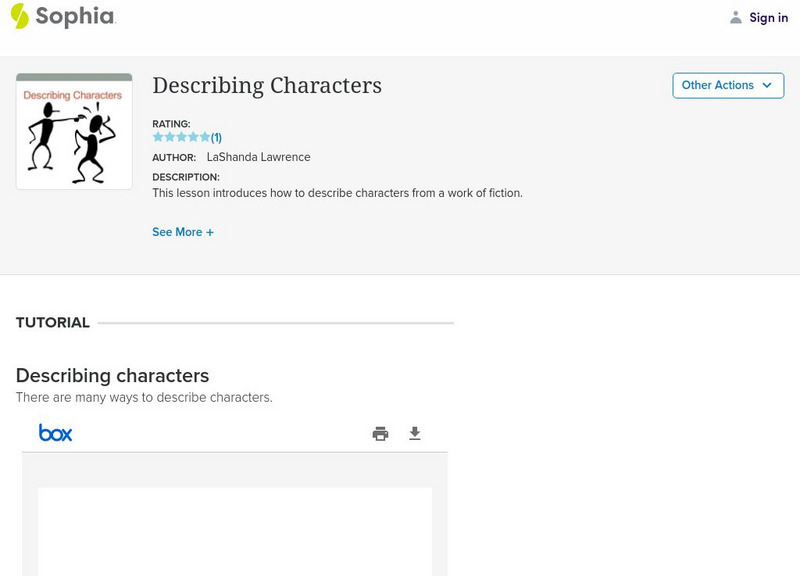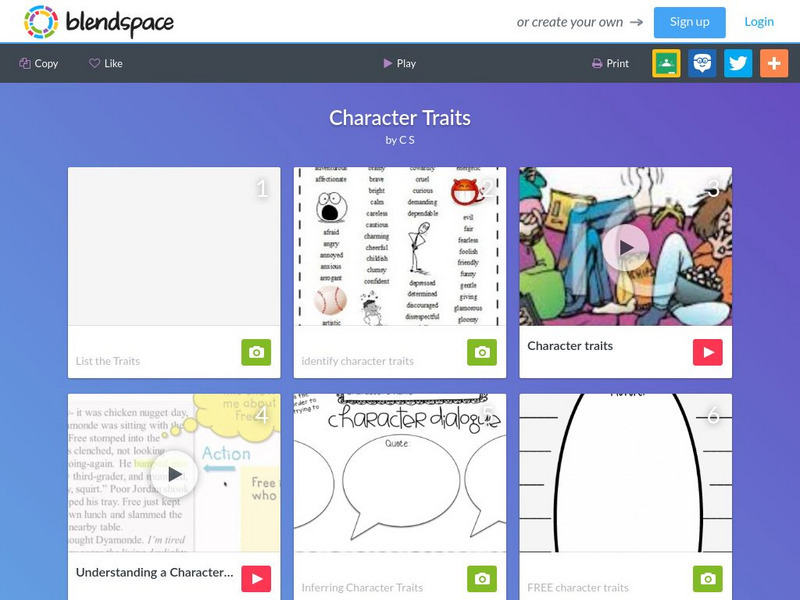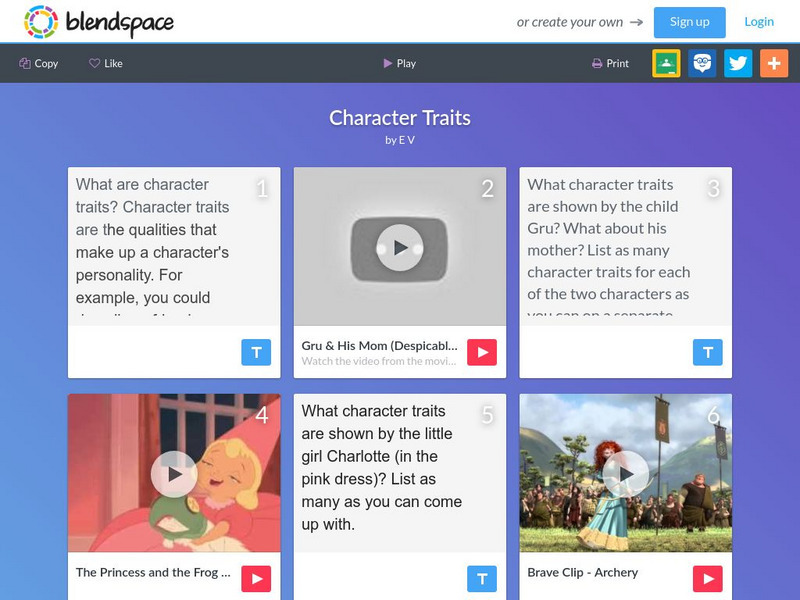Read Works
Read Works: Classify and Categorize 2nd Grade Unit
[Free Registration/Login Required] A series of three lesson plans designed to teach students to classify and categorize items, characters, and information. The third activity is based on the book Splish! Splash! Animal Baths by April...
Writing Fix
Writing Fix: Serendipitous Superheroes
In this lesson, SuperHero ABC, a book written by Bob McLeod, and Meanwhile, a book by Jules Feiffer, are used as mentor texts. Learners will work in groups and create lists of unique superhero powers that start with different letters of...
ReadWriteThink
Read Write Think: Become a Character
In this online lesson plan and activity, young scholars actually "become" a character from a novel in their analysis of characterization. The lesson plan uses the Scarlet Letter, but any novel can be used. RL.9-10.3 Analyzing Characters,...
PBS
Pbs Learning Media: A Decision Is Made
In this video segment from Africa, Flora explains why she is content to return to the bush.
Alabama Learning Exchange
Alex: Clifford's Class Trip by Norman Bridwell
During this lesson students learn new vocabulary words through an enjoyable children's book. Students use knowledge of the new words to create a slideshow and original story.
Alabama Learning Exchange
Alex: What Can We Learn From Pigs?
This thematic language arts lesson uses a variety of beginning reading books about pigs to help special education/early elementary students learn about character traits and concepts. The wide use of graphic organizers introduces...
Alabama Learning Exchange
Alex: Give That Character a Voice With Voki!
This instructional activity fuses fictional literature with technology through a project-based experience. Students will use the free online resource Voki to bring a fictional character to "life" and deepen their understanding of...
Alabama Learning Exchange
Alex: Who Do You Think You Are?
Students will demonstrate an understanding of character through improvisation. Students will imagine and clearly describe their characters through performance. They will relate a character's actions and emotions and create a setting.
Alabama Learning Exchange
Alex: Examining Character Motivation
During this unit, students will ask "Why do we do what we do?" They will read different novels to analyze character motivation. Throughout the unit they will debate whether they think characters made smart choices and why. They will also...
Alabama Learning Exchange
Alex: A Hero by Any Other Name. . .
In conjunction with a study of literary or national heroes or in recognition of 9/11 week, young scholars select a hero from among their family and friends, gather information about him/her, and prepare a multimedia presentation of their...
Alabama Learning Exchange
Alex: What a Character!
This lesson opens up the world of writing by introducing students to the point of view in a story. Students will have the opportunity to read a new version of a classic story and see how it changes when it is written from another...
PBS
Pbs Learning Media: Modern Little Red Riding Hood: Video
As you watch this updated story of Little Red Riding Hood, notice the traits, motivations, and feelings of the characters in the story. Check out the additional activities including Guided viewing. Students describe characters in a story...
Curated OER
Mac Millan: Describe Characters in Stories
This learning module focuses on characters in stories including their actions, changes in character behaviors, and describing character traits. It includes an example passage with questions and answers and a practice passage with questions.
Quia
Quia: Character Traits/descriptions
This reading resource provides vocabulary words with definitions. All words are related to character development and character traits. A link to associated review activities is included.
Daily Teaching Tools
Daily Teaching Tools: Customizable Graphic Organizers
This Daily Teaching Tools resource provides a series of graphic organizers for reading students. Forms are provided for plot, character analysis, reading logs, and reading responses.
Houghton Mifflin Harcourt
Holt, Rinehart and Winston: Elements of Literature: Determining Methods of Characterization [Pdf]
A brief organizer in which students can document how a character in literature is presented, through either direct or indirect characterization. Provides labels, examples, and sections for textual support.
Sophia Learning
Sophia: Describing Characters
This lesson introduces how to describe characters from a work of fiction.
TES Global
Blendspace: Character Traits
A seven-part learning module on character traits and how to identify them. Lessons include links to lessons, a character traits list, videos and graphic organizers.
TES Global
Blendspace: Ela: Character Traits
Four video clips followed by questions to help students learn to identify character traits in literary texts.
Annenberg Foundation
Annenberg Learner: Interactives: Elements of a Story: Characters
The interactive story lesson engages students in the study of "characters" and terms associated with them. Using the story of Cinderella as an anchor story, students will identify the following: hero, villain, protagonist, antagonist,...
ClassFlow
Class Flow: What a Character
[Free Registration/Login Required] This flipchart discusses ways that authors reveal character traits. Students learn to find examples in the literature to demonstrate that character traits. A sample assessment, graphic organizer and web...
ClassFlow
Class Flow: Characterization
[Free Registration/Login Required] This flipchart is a resource for the study of an author's use of characterization. It includes many game cards as well as a multitude of graphic organizers. The author also includes links to online...
ClassFlow
Class Flow: Doctor De Soto
[Free Registration/Login Required] This flipchart focuses on identifying character traits in characters. There are plenty of opportunities for assessment using Activotes. In addition there is practice with vocabulary, phonics, and...
Sophia Learning
Sophia: Characters and Plot
This lesson introduces the connection between characters and plot in fiction writing.


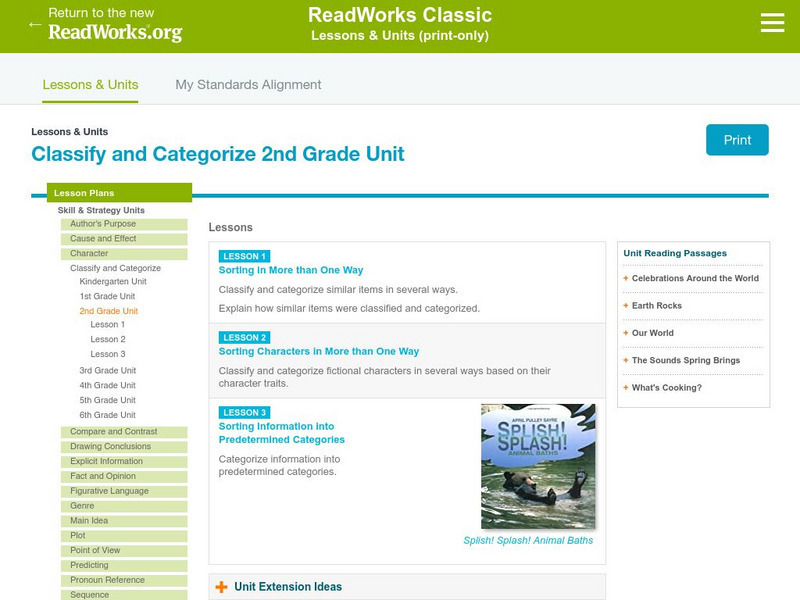

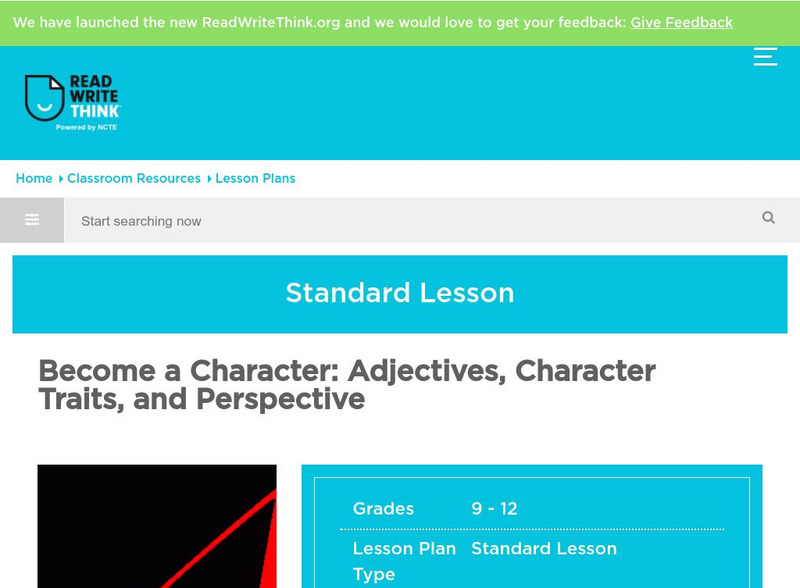








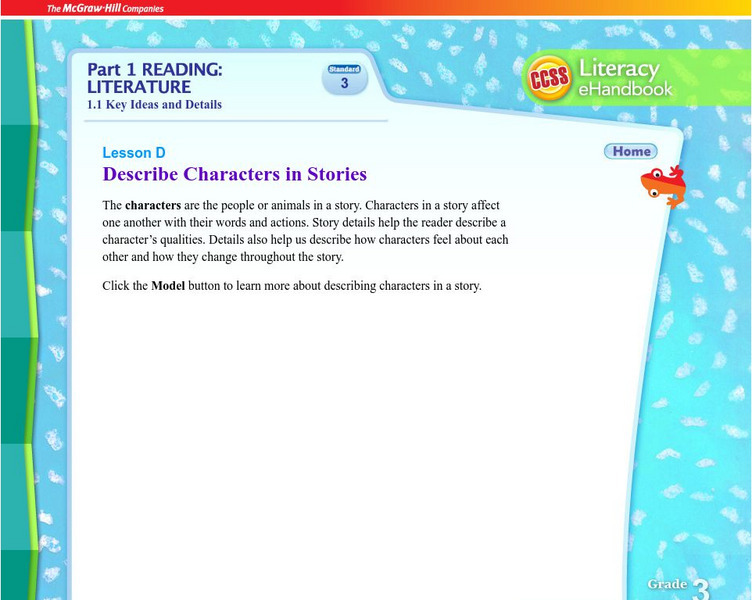

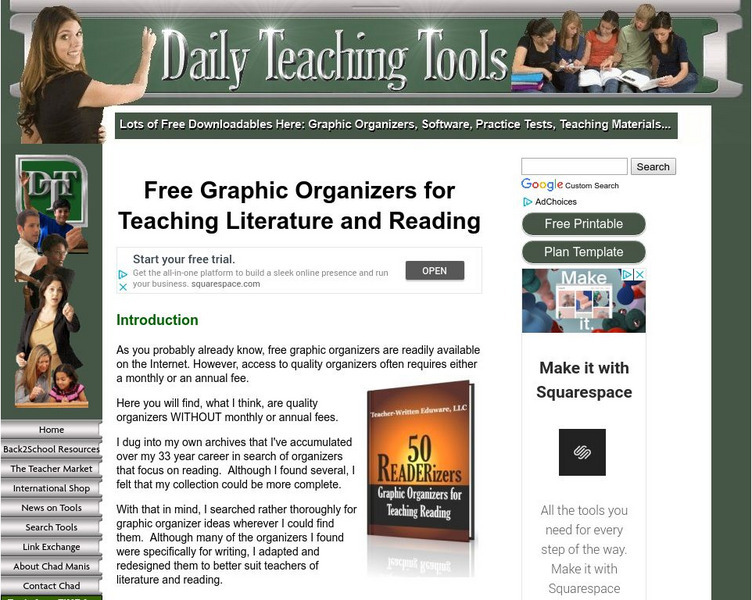
![Holt, Rinehart and Winston: Elements of Literature: Determining Methods of Characterization [Pdf] Graphic Holt, Rinehart and Winston: Elements of Literature: Determining Methods of Characterization [Pdf] Graphic](http://content.lessonplanet.com/resources/thumbnails/410109/large/bwluav9tywdpy2symdiwmduymc0ymjy4mc0xz3pvamf3lmpwzw.jpg?1589985471)
